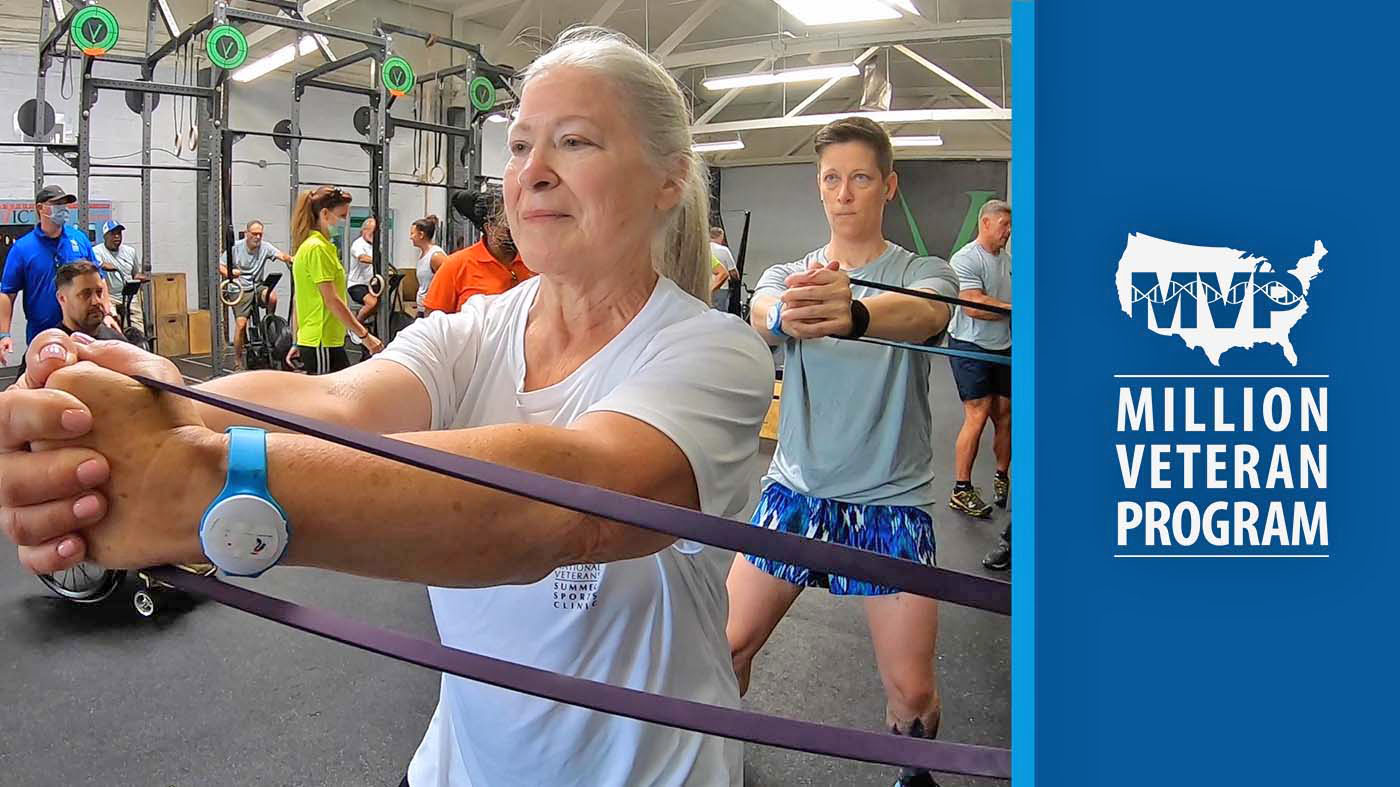Following a concussion, some Veterans experience chronic, severe headaches that are difficult to treat. But thanks to VA’s new application of a versatile drug called prazosin, relief may be in sight.
Every year in the United States, an estimated 1.7 million people sustain a traumatic brain injury (TBI). Most TBIs are classified as mild TBIs, also known as concussions. For most people, concussions resolve quickly on their own, without treatment or any lasting effect. Even headaches, the most common problem following a concussion, usually occur for only a few months before tapering off.

Over the past decade, increasing evidence suggests that prazosin (sold under the brands Minipress, Vasoflex and Lentopres) may lessen the severity and frequency of post-concussion headaches when taken regularly. Originally approved in 1974 as a treatment for high blood pressure, prazosin has since been used to treat symptoms of enlarged prostate, a rare circulatory disorder called Raynaud’s disease, and trauma nightmares and sleep disruption related to posttraumatic stress disorder (PTSD).
Prazosin exploratory findings
After hearing a lecture by Dr. Murray Raskind on prazosin’s beneficial effects in treating combat-related PTSD symptoms, Dr. Robert Ruff–then VA’s national director for neurology–explored using prazosin to treat PTSD-related nightmares and sleep disturbances among Iraq and Afghanistan Veterans who had experienced post-concussion headaches. Dr. Ruff observed that, in addition to experiencing substantially improved restorative sleep and reduced daytime sleepiness, participants in his study had significant reductions in both frequency and intensity of post-concussion headaches
After nine weeks of daily treatment with prazosin, the Veterans in Dr. Ruff’s study reported an average reduction from 12 headaches a month down to five, and an average decrease in pain intensity from a nine on the 10-point scale to a four. While it’s not clear how prazosin works on headaches, one theory is that it improves sleep and may help clear inflammatory agents from the brain.
Although Dr. Ruff’s observations were very encouraging, they needed to be validated by a study comparing the use of prazosin to a placebo in treating people with chronic post-concussion headaches. Researchers at the VA Puget Sound Health Care System (VISN 20) are now conducting that study, and their preliminary results are promising. Among study participants who have completed the six-month clinical trial, prazosin appears to work significantly better than a placebo in reducing the frequency and severity of headaches.
Versus other treatments
Prazosin seems to have about the same success rate as other preventive headache therapies and may provide an effective option for Veterans whose headaches have been resistant to other treatments. Additionally, prazosin is widely available, including as an inexpensive generic, and it’s not habit-forming. It has few side effects and can be used to simultaneously treat different symptoms, such as post-concussion headaches and PTSD.
As researchers in VISN 20 continue to explore prazosin, they remain committed to ensuring that it is both safe and effective.
For the time being, all meetings typically held in person at the VA Puget Sound and Madigan Army Medical Center have been suspended. The team is working with currently enrolled participants remotely via telehealth. Currently, the team has continued prescreening Veterans and service members interested in study participation by phone, but no additional members will be enrolled until further notice.
Those interested in learning more about the ongoing study of prazosin’s effect on headaches related to a concussion can find out more by reading the study fact sheet at www.mirecc.va.gov/visn20/docs/PTH.pdf
VISN 20 Northwest MIRECC
For more information on the VISN 20 MIRECC, visit https://www.mirecc.va.gov/visn20.
Cindy Mayer, D.O., is a research neurologist and clinical nuclear medicine physician at the VA Puget Sound Health Care System in Seattle. Dr. Mayer is the VA Principal Investigator for the Chronic Postconcussive Headache: A Placebo-Controlled Treatment Trial of Prazosin Study.
Murray A. Raskind, M.D., is a professor of psychiatry and behavioral sciences at the University of Washington and directs the VISN 20 Northwest MIRECC. Dr. Raskind discovered that prazosin is effective in treating PTSD-related trauma nightmares, sleep disruption and daytime hyperarousal symptoms.
Topics in this story
More Stories
Navy Veteran and president of the American Medical Association got a colonoscopy and encourages other Veterans to do the same.
Chicago Vet Center and VA gave women Veterans information on VA services available to them.
MVP’s research informs personalized care for Veterans, supporting whole health and beyond.







So this drug, Prazosin caused my husband to lose his eye. He had been having surgeries to save his eyesight but in the midst of these surgeries, the VA decided to put him on Prazosin for his Essential Tremor and PTSD night mares. Well he was already taking a blood pressure medication and when he started this, his bp bottomed out and no blood was able to circulate through his membranes around his eye and he ended up in the hospital and was taken off of Prazosin. He ended up losing his eyesight and eye but has never had low blood pressure since. The VA doesn’t look at the overall picture. They don’t take into consideration all the procedures other doctors are doing. They focus on their area. Make sure you know what Prazosin will do to your body before starting it. In the end the VA said they weren’t liable for him losing his eyesight. He was never even given compensation for his PTSD. So he has lived on 50% disability since 2016.
I’m going to sue the VA,gov for not handle my case (50%) gave to me and I have ED, numness in hands,feet, panic attach, back and knees pain, nightmare,and want help me with Aid and Attached for my CNA helping me daily, all y’all is going down! That money is not your it is for the ones that served.i also have IBS am passing blood and heart problem.
This is absolute bullsht. As many times as I have been in the PTSD program at the VA which at this point has been 3 times for a 2-3 month stay each time they push this drug and absolutely none of the other guys in the program with me ever had it work. It increased my headaches and cause VERY vivid nightmares that I already struggle with from the PTSD. Do not listen to this. This is bullsht. All prazosin is good for is worsening the condition and bottoming out your blood pressure. Do better VA.